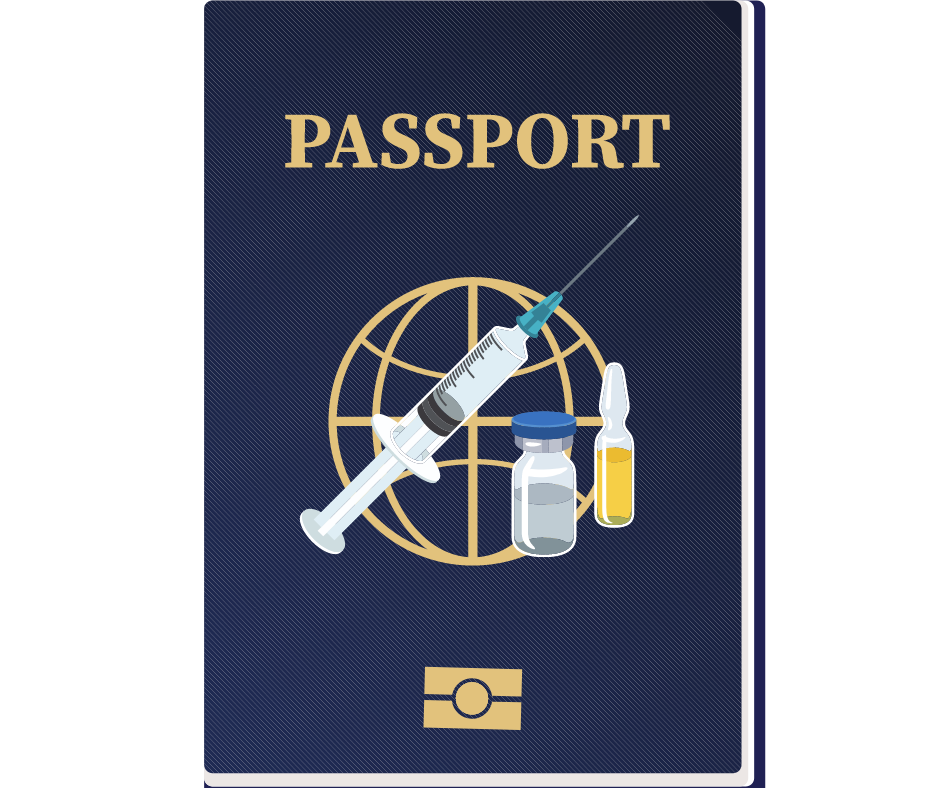What Exactly Are Vaccine Passports? There Are Still Questions If They Would Actually Work

BY BRIAN DE LOS SANTOS IN NEWS ON MARCH 5, 2021 6:00 AM
LAist
As countries around the world embark on ambitious COVID-19 vaccination programs, governments and businesses are increasingly looking for ways to tell who has been inoculated from those who have not. One idea that's been gaining traction is a vaccine passport.
David Studdert, professor of Medicine and Law at Stanford University, explains:
"It's a basic verification that someone has had vaccination, or potentially even has positive antibodies from a prior infection. What actual physical form it will take, is a little bit up in the air right now."
Early movers on this idea are embracing "some sort of digital certification," says Studdert, like a QR code that could be carried on your phone, and it wouldn't just be used for air travel. Vaccine passports could potentially give people clearance to go to things like concerts and sporting events — all the fun things we did back in the "before times."
Now, it's unclear when something like this would actually be available to Angelenos. President Biden asked government agencies to look into it; meanwhile, Israel, Saudi Arabia, Denmark, Sweden, Hungary, Poland, and Australia are already experimenting with some version of a vaccine passport, or they are in the planning stages of doing so, Studdert told our news and culture show Take Two.
ARE VACCINE PASSPORTS TOO MUCH OR NOT ENOUGH?
The idea is not without controversy. It has sparked intense debate between advocates, who see vaccine certificates as the only way to return to normal life, and opponents, who worry about government overreach, discrimination, and a further widening of the gap between the haves and have-nots.
The argument against passports can be placed in two camps, Studdert said: scientific and ethical. "On the scientifc side, we still have significant questions about whether people who have been vaccinated — or have positive antibodies through prior infection — can still become infected and spread the virus," said Studdert. "So you can imagine that if that's not certain, we could some false assurance ... out of this idea of certifications."
On the ethical side, there is concern over those who lack access to the vaccine. Already, we've seen massive inequity in who has been able to get the shots, and if some of those same groups of people continue unvaccinated, they would not have the same path back to normal life that others might.
COULD IT HAPPEN IN THE U.S.?
For now, in the U.S., neither Republicans or Democrats have taken a firm stance supporting, or opposing, the idea. Studdert and his colleague Mark Hall, a nonresident Senior Fellow in Economic Studies at the USC-Brookings Schaeffer Initiative for Health Policy, conducted polling on Americans' attitudes towards immunity passports. There was a nearly 50-50 split among support and opposition to the idea, regardless of political, socio-economic, or racial background.
"This is a sort of pre-political issue, in a sense," Studdert told Take Two. "There's so much else going on that I don't think the public's attention has focused on this, nor the political parties' attention has focused on this."
Listen to David Studdert's entire interview with Take Two's A Martinez:
This report is reprinted with permission from Southern California Public Radio. © 2021 Southern California Public Radio. All rights reserved.


